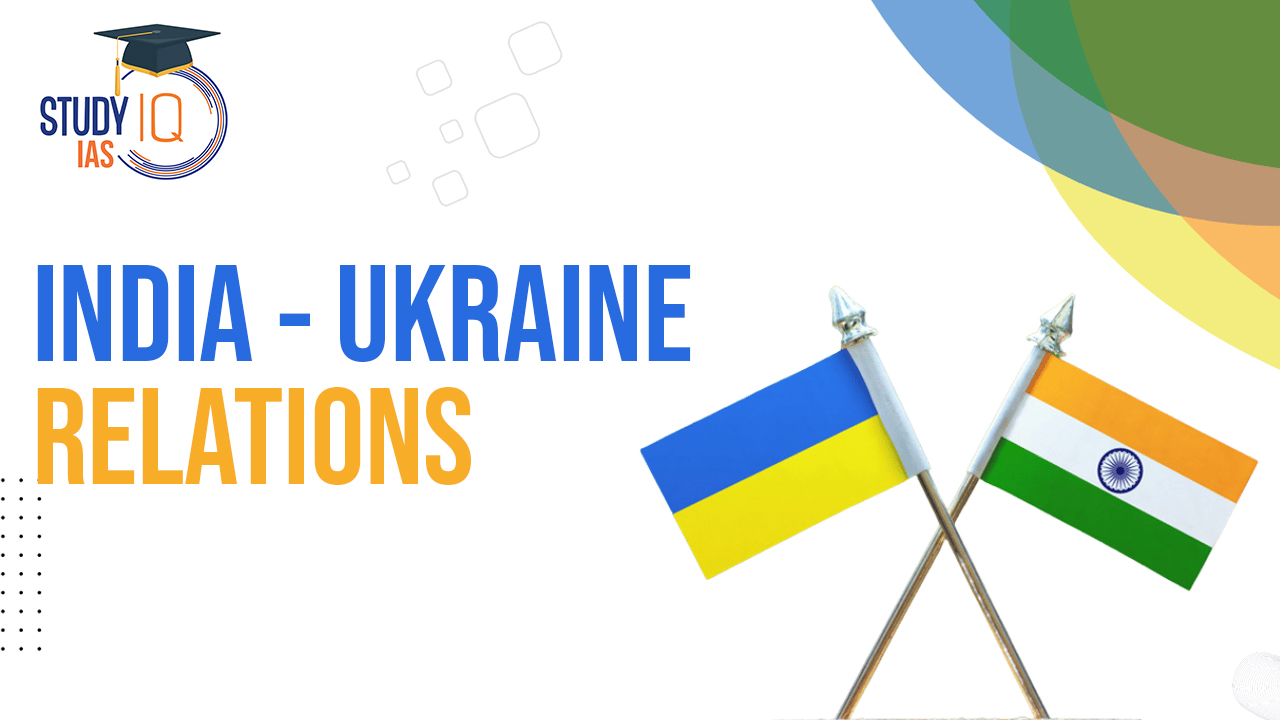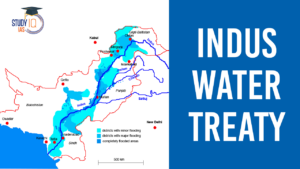Table of Contents
Recently, PM Modi visited Ukraine. This visit marks the first time an Indian Prime Minister will visit Ukraine since diplomatic relations were established between the two countries in 1992.
PM Modi Visit to Ukraine
- Break from Traditional Foreign Policy: The visit is part of a larger effort to enhance India’s engagement with Europe beyond the traditional focus on major powers like Russia, Germany, France, and Britain.
- This shift indicates a more balanced approach in India’s international relations, moving beyond Cold War-era alliances.
- Response to Russia-Ukraine War: The visit comes in the wake of the Russia-Ukraine war, which has strained India-Ukraine relations.
- The war has created new opportunities for India to engage with Ukraine, especially in the context of post-war reconstruction and defence industrial cooperation.
- By engaging with both sides, India positions itself as a neutral party capable of facilitating dialogue and diplomacy for peace.
- Strategic Engagement: The visit highlights the potential for economic cooperation, particularly in sectors like defence, agriculture (with Ukraine being a major supplier of sunflower oil to India).
- These areas of cooperation could strengthen India’s strategic position in the region.
- Non-Alignment and Vishwabandhu: This visit is part of India’s broader strategy to engage more deeply with Europe, reflecting a shift from the traditional policy of Non-Alignment to a policy of maintaining close ties with all countries.
- This approach is described as a push to become “Vishwabandhu” (a friend to the world), recognizing the opportunities in Central and Eastern Europe while decoupling India’s engagement in the region from its relationship with Russia.
Does it Impact India- Russia Relations?
- The visit to Ukraine is not expected to negatively impact India’s relations with Russia.
- India continues to play a crucial role in supporting Russia’s economy amidst Western sanctions, and the two countries maintain cooperation in various areas, including military hardware.
- The visit is a potential break from Russia and does not account for the complexity of international relations.
- Just as Russia engages with China (India’s geopolitical rival) based on mutual interests, India’s engagement with Ukraine will not disrupt its relationship with Russia.
Significance of PM’s Visit to Kyiv
- Balancing Act in Foreign Policy: The visit is interpreted as a strategic balancing act, particularly after Modi’s recent visit to Russia, which drew criticism from Western powers.
- By engaging with both Russia and Ukraine, India aims to position itself as a neutral player in the conflict.
- Strengthening Global South Initiatives: India’s involvement could bolster ongoing efforts by Global South countries in the negotiation process, reflecting India’s commitment to contributing to global peace and stability.
- Legacy-Defining Moment for Modi: It aligns with his broader vision of India as a “Vishwamitra,” playing a central role in global peace and security.
- Signal of India’s Sovereignty and Diplomatic Independence: By engaging directly with Ukraine, India underscores its sovereign approach to international relations, showing that it can engage with all relevant parties in global conflicts independently and on its own terms.
Impact of the Russia-Ukraine War on Bilateral Relations
- Trade Decline: The Russia-Ukraine war significantly impacted India-Ukraine bilateral relations.
- Trade between the two nations fell sharply from $3.39 billion in 2021-22 to $0.78 billion and $0.71 billion in 2022-23 and 2023-24, respectively.
- Opportunity for Engagement: Despite the downturn in trade, the war has opened new avenues for India to engage with Ukraine.
- India has maintained a strategic balance regarding the conflict and has actively engaged with Ukraine at the highest levels of leadership over the past two years.
10-Point Peace Formula for Conflict between Russia and Ukraine
- Radiation and Nuclear Safety: Prioritise the restoration of safety measures around the Zaporizhzhia nuclear power plant in Ukraine, currently under Russian control.
- Food Security: Ensure the protection and continuation of Ukraine’s grain exports, particularly to the world’s most impoverished countries.
- Energy Security: Implement price caps on Russian energy exports and support Ukraine in repairing its power infrastructure, which has sustained significant damage from Russian military actions.
- Release of Detainees: Secure the freedom of all individuals held captive, including war prisoners and children taken to Russia.
- Territorial Sovereignty: Reinstate Ukraine’s territorial integrity in accordance with the United Nations Charter, necessitating Russia’s recognition and respect for this sovereignty.
- Ceasefire and Withdrawal: Demand the withdrawal of Russian forces and the halt of military aggression, aiming to restore Ukraine’s internationally recognized borders with Russia.
- War Crimes Justice: Establish a special tribunal for the prosecution of Russian war crimes committed during the conflict.
- Environmental Protection: Focus on environmental rehabilitation, including mine clearance and the repair of water purification systems.
- Conflict De-escalation: Work towards de-escalating the conflict and developing a security framework in the Euro-Atlantic area, with specific security assurances for Ukraine.
- Conflict Resolution Confirmation: Finalise the conflict’s conclusion through a formally signed agreement by all parties involved.
We’re now on WhatsApp. Click to Join
India-Ukraine Relations
Diplomatic Ties
- Recognition of Ukraine’s sovereignty by India occurred in December 1991 following the Soviet Union’s dissolution.
- India inaugurated its embassy in Kyiv in May 1992, and Ukraine established its mission in New Delhi by February 1993.
- The nations share a cordial relationship, collaborating in sectors such as education, legal aid, and space exploration.
Defence Cooperation
- Since gaining independence, India has sourced military technology and equipment from Ukraine.
- The Indian Air Force employs R-27 air-to-air missiles, produced by Ukraine, on its SU-30MKI fighter jets.
- India has begun exporting weapons to Ukraine, marking a significant step in defence collaboration.
Economic Exchange
- Ukraine considers India the top export destination in the Asia-Pacific region and ranks it fifth globally.
- Bilateral trade between the two countries had grown significantly in the last 25 years, reaching US $3.386 billion in 2021-22, but it has suffered a setback in the last two years of war.
- Indian exports to Ukraine are predominantly pharmaceutical products.
Cultural Interactions
- Over 30 Ukrainian groups are dedicated to promoting Indian dance forms.
- Approximately 18,000 Indian students are pursuing medical studies in Ukraine.
- Indian professionals are primarily engaged in the pharmaceutical, IT, engineering, and educational sectors within Ukraine.
Humanitarian Assistance
- India dispatched 15 shipments of humanitarian aid consisting of medical supplies, medical equipment, blankets, tents, etc.
- The Indian government contributed to the rebuilding of a school in Kyiv as part of its efforts to assist in Ukraine’s recovery.
Additionally, funding was allocated for the training of educators from three Kyiv schools, aimed at enhancing the psychological well-being of Ukrainian children and adolescents amidst the war.


 UDAN Scheme, Objectives, Funding and Ach...
UDAN Scheme, Objectives, Funding and Ach...
 Indus Water Treaty 1960 Suspended by Ind...
Indus Water Treaty 1960 Suspended by Ind...
 5 Years of SVAMITVA Scheme and Its Benef...
5 Years of SVAMITVA Scheme and Its Benef...





















